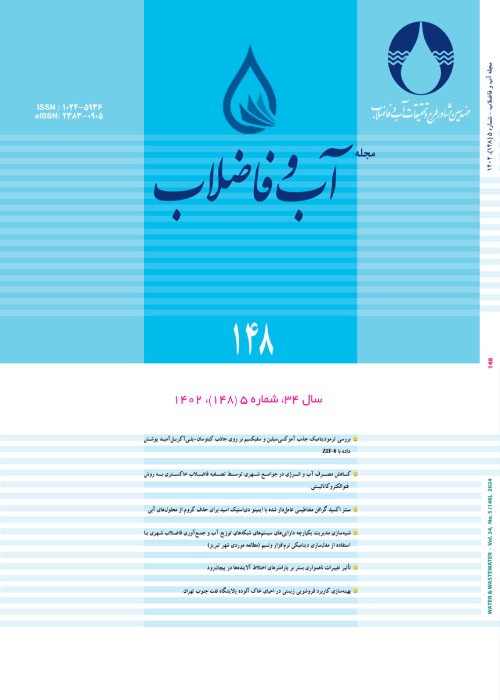Effects of Sewage Sludge on Net Nitrogen Mineralization in Soil
Author(s):
Nourbakhsh , F
Abstract:
Organic fertilizers, including sewage sludge, are considerable sources of plant nutrients. Nitrogen mineralization is an enzyme mediated process being undertaken by soil microbial populations. This study was conducted to investigate the effects of some organic fertilizers (sewage sludge, sheep manure, municipal solid wastes and oleaster leaves) on net nitrogen mineralization in a calcareous. Two levels of 1% and 2.5% of organic fertilizers in three replications were incorporated to a calcareous soil and moisture was adjusted at 50% water holding capacity. Soils were incubated at 25oC for 20 weeks. A control treatment (without addition of the organic fertilizers) was run to determine the fertilizer induced nitrogen mineralization. Results indicated that all treatment had significantly higher net nitrogen mineralization than that of control. Net nitrogen immobilization was not observed. The highest (332.9 mg/kg) and the lowest (187.1 mg/kg) rates of net nitrogen mineralization were observed in 2.5% of sewage and 1% of municipal solid wastes, respectively. The results also indicated that 53% and 29% of fertilizer nitrogen were mineralized during the 20 weeks of incubation form sewage sludge and municipal solid wastes, respectively. Sheep manure and oleaster leaves had intermediate rates of net nitrogen mineralization. It seems that sewage sludge contains higher amounts of total and easily mineralizable nitrogen
Language:
Persian
Published:
Journal of Water & Wastewater, Volume:14 Issue: 48, 2004
Page:
33
magiran.com/p146274
دانلود و مطالعه متن این مقاله با یکی از روشهای زیر امکان پذیر است:
اشتراک شخصی
با عضویت و پرداخت آنلاین حق اشتراک یکساله به مبلغ 1,390,000ريال میتوانید 70 عنوان مطلب دانلود کنید!
اشتراک سازمانی
به کتابخانه دانشگاه یا محل کار خود پیشنهاد کنید تا اشتراک سازمانی این پایگاه را برای دسترسی نامحدود همه کاربران به متن مطالب تهیه نمایند!
توجه!
- حق عضویت دریافتی صرف حمایت از نشریات عضو و نگهداری، تکمیل و توسعه مگیران میشود.
- پرداخت حق اشتراک و دانلود مقالات اجازه بازنشر آن در سایر رسانههای چاپی و دیجیتال را به کاربر نمیدهد.
In order to view content subscription is required
Personal subscription
Subscribe magiran.com for 70 € euros via PayPal and download 70 articles during a year.
Organization subscription
Please contact us to subscribe your university or library for unlimited access!


